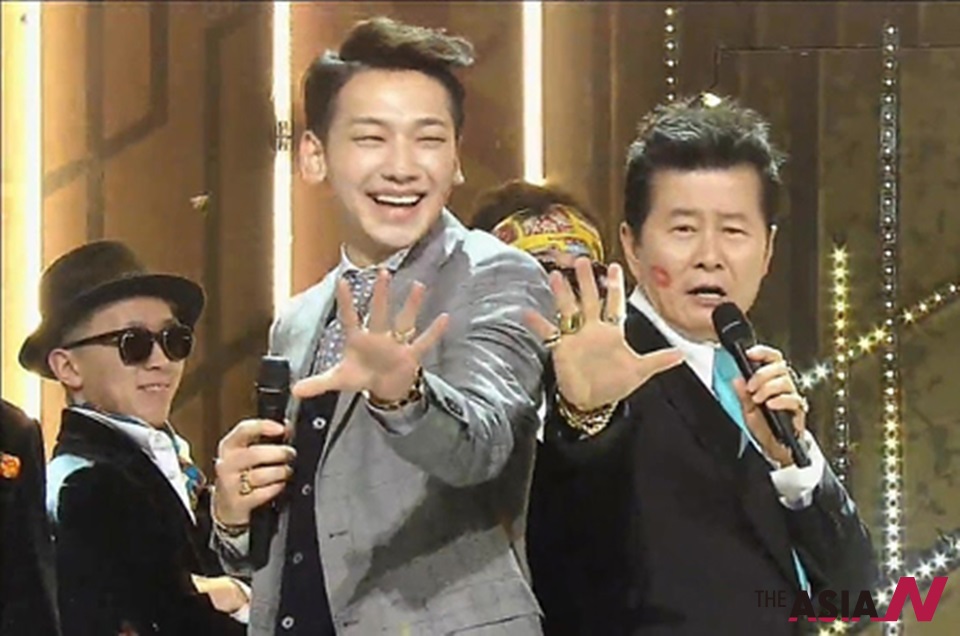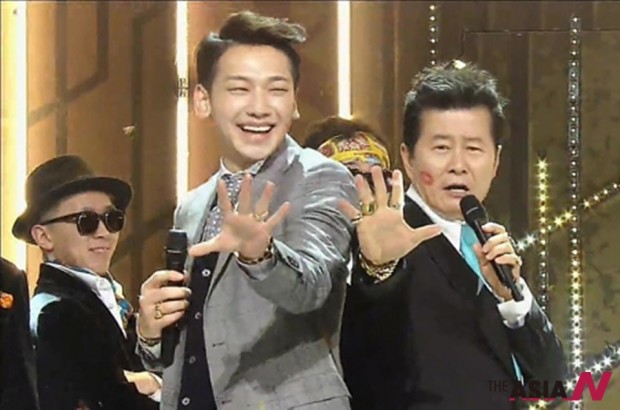
K-pop meets old popular music

Collaboration makes ‘trot’ hot
The music genre “trot” seems hardly mainstream today.
Although it is regarded as the “root” of K-pop, the oldest form of Korean popular music has had to live so far the life of an outcast, whilst its offspring enjoyed global stardom.
Such tags as “boring” and “for the elderly only” always followed the music.
That is likely to change thanks to series of efforts by younger musicians to revive the genre.
K-pop singer Rain made a surprise performance with Tae Jin-ah, 60-year-old trot singer, in January. The seemingly unlikely collaboration, singing Rain’s “La Song,” proving that trot has a place in the idol-dominated music scene.
“Through the experience, I realized that older and younger generations can communicate with my music. It was a challenge for me to do a new form of music, but it was fun and extremely easy,” said Tae.
Other in-kind collaborations followed. Girl band Crayon Pop’s new song “Uh-ee” carefully mixes trot music with electro house music, while Yoo Sae-yoon, hip-pop duo UV’s member, recently released a song in collaboration with trot singer Hong Jin-young.
Mnet’s new survival talent show “Trot X,” which has been aired since March 21, is giving another push to make the music genre more popular especially among younger people. In the “Superstar K” like show, a pair of hosts — comprised of a trot and non-trot musicians — make a team with their choice of contestant and compete with other teams.
“‘Trot X’ is the combination of trot and multiplication sign. We would like to show the infinite synergic effect of trot music, when they are blended with other music genres,” said Tae confidently at a press conference introducing the show.
The hosts themselves are an interesting mix: veteran trot singers Tae Jin-a and Sul Woon-do; young trot stars Park Hyun-bin and Hong Jin-young; comedian-musicians Park Myeong-su and Yoo Sae-yoon; and K-pop singers Ivy and Muzi.
During the 12 episodes, trot will be fused with rock, hip-hop, dance and electronic dance music. So far two episodes have been aired and the public’s response is better than expected.
One man in his early 30s, who lost his sight after car accident, sang a song for his wife, while a 50-year-old singer, living 30 years in obscurity, gave an explosive performance.
Acoustic male duo “Ladies” interpreted trot in their words, using various sounding scats and dexterous guitar playing. And Sookhang, who debuted in 2011, showed SISTAR’s dance routine and sang “Give it to Me” in trot revised version. The 30-year-old, who wants to be a female Psy, said that she decided to participate in the show, because she had few chances to perform trot music. A pastor and a young and handsome Frenchman added more diversity to the show.
After each show, participants’ YouTube videos have been plastered with positive comments from viewers.
Although it is premature, music insiders are already talking about the revival of the so-far-neglected Korean popular music. They say that with the refined sound and flash performances, trot music has evolved to become a genre that pulls at the emotional heartstrings of the younger generation as well as older people.
“If we listen to the K-pop music of today, we find the traces of trot music in it. The rhythm, typical to trot music, has power to grab listeners,” said Kim Tae-eun, producer of the show.
“During the show, audiences will be able to enjoy not only the typical trot songs but also the new types of trot songs mixed with different genres. I hope it will enable listeners to get to know its unique charm, becoming a new musical trend.”
Seasoned trot singer Sul warned that no change in the classic popular music genre will only hasten the demise of it. “Blindly chasing after the tradition might alienate it from other music genres. Without self-development and the introduction of a new environment, there cannot be a future for us,” he said.
“Like Cho Yong-pil’s Bounce, we also need to show something unexpected to our audiences. Trot songs should become more refined and trendy as K-pop songs have,” he added.
Sul said, “My heart is aching, whenever I see the music genre cold-shouldered in broadcasting. This is because the programs we appear in do poorly in the viewership ratings. If all of us don’t seek for an exit jointly, we will have no future.” By Park Jin-hai, The Korea Times



